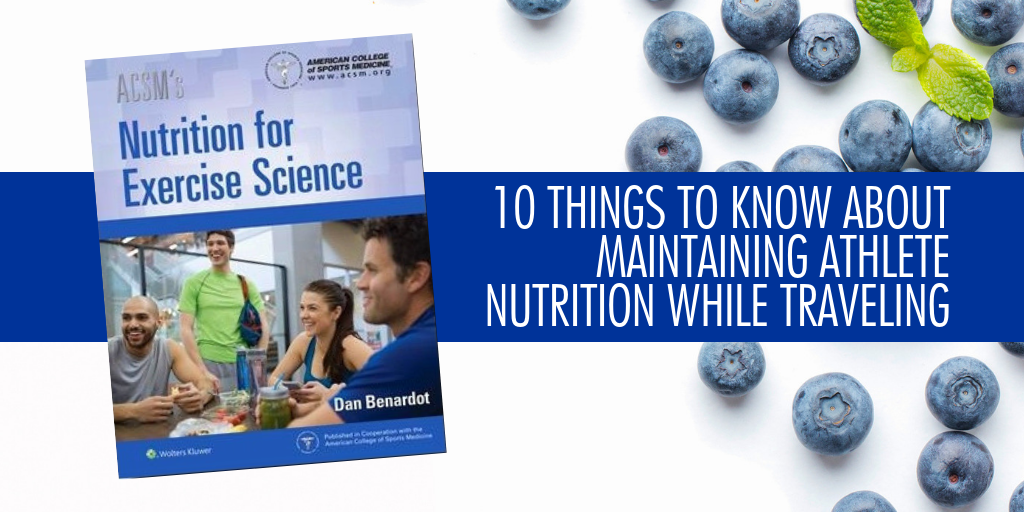Dan Benardot, PhD, DHC, RD, LD, FACSM |
March
14, 2019

Athletes often travel to train and compete. Changes in the athlete’s circadian rhythms due to traveling across time zones can affect sleep as well as the gastrointestinal (GI) tract. Additionally, GI issues may be caused by traveling to regions where the food may not be familiar. Overall, travel has the potential to significantly affect athletic performance.
Planning ahead is key to maintain the athlete’s ability to train or compete at his/her conditioned capacity. Consider the following tips to enhance the probability of athlete success:
- Sleep well, and gradually adjust sleep times to match sleep time at destination.
- Research the destination to learn about possible food safety risks.
- Construct a daily schedule to anticipate when and how much will be eaten.
- When flying, preorder special meals with the airline that may be required to satisfy food intolerances or allergies.
- Air travel is dehydrating. Keep sipping on water, fruit juice and/or sports beverages while on the flight.
- Avoid alcohol and excess consumption of caffeinated beverages (coffee, tea, etc.) as both are dehydrating.
- If in doubt about water safety, take no chances and drink only bottled water and clean teeth using only bottled water.
- When eating out, try to only eat at established, good-quality restaurants that can cater to athletes needs. Additionally, plan to eat in locations where meats, shellfish and/or fish are fully cooked.
- Avoid raw food (salads, etc.) and unpeeled fruit, as these may contain bacteria that could give the athlete GI distress.
- Bring foods that are known to be well tolerated such as cereal bars, dried fruit and powdered sports drinks.
To learn more about preparing the athlete for travel and maintaining optimal athletic performance in a variety of environmental conditions, consult ACSM’s Nutrition for Exercise Science.
Dan Benardot, PhD, DHC, RD, LD, FACSM is Professor Emeritus at Georgia State University, and Visiting Professor in the Center for the Study of Human Health at Emory University. Dr. Benardot has worked for many years with Olympic athletes, including power athletes and endurance athletes, and he was also the team nutritionist for the five years leading up to the Atlanta Falcons 2017 NFC Championship. He is the author of the new title ACSM’s Nutrition for Exercise Science.